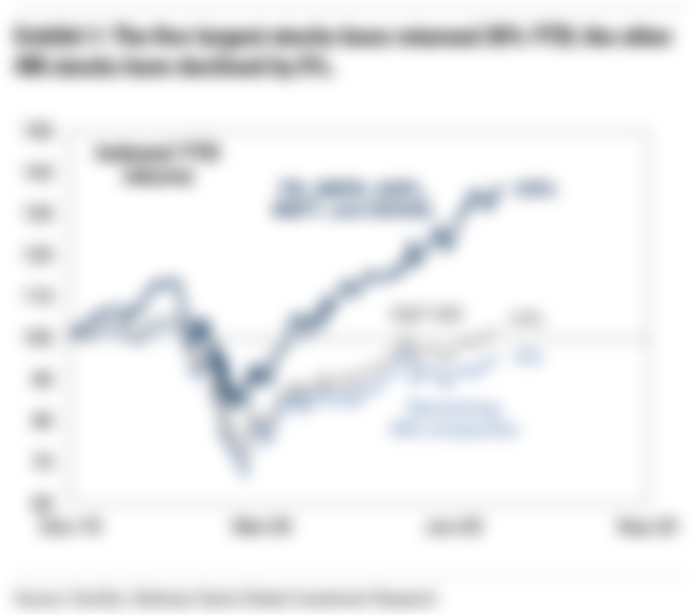It is not uncommon to read of users who bring to our attention the thesis of "nothing will happen". After all, central banks have catalyzed their unprecedented scale measures to stop the river of red ink that has spilled in the wake of the Covid crisis. Apparently that's the case, or at least that's what is seen. What is it the unseen? If what has been done so far is really enough to stop the crisis and is enough to relaunch the world economy, then central banks must have a precise and coherent exit strategy that allows them to take a step back. Where is it? Why is nobody talking about it? So far we have seen a supposedly endless world of interventionism in the economy, with no detailed plan on what to do once the economy is "back on track". To date, there is no such thing, and when last year the Fed alone drafted one in September, chaos broke out in the repo market, leading the Eccles Building to pull the handbrake and return to intervene.
needless to say that most of the aforementioned intervention ended up in the stock markets and especially in those stocks where trading is more concentrated. FAAMG shares are reminiscent of the big four's performance during the dotcom bubble (Microsoft, Dell IBM, Cisco) and we all know how it ended. The following chart shows how much weight they have in the S&P index, but above all it underlines the unjustified frenzy around this group as they have not invented anything revolutionary to support their stock market climb. In fact, to date the P/E ratio of the index is 29, and it is decidedly higher for the individual FAAMGs, signaling an embarrassing problem of overestimation.

Today's stock prices are "fake", but as long as the Fed continues to interfere an investor can sell his shares at "fake" prices and use the money to buy real things. The investor ends up owning the wealth of someone else. The "exit strategy" used so far? If prices go down, central banks push them back. This Kabuki theater began after the 1987 crash, then continued after the Nasdaq crash of 2000 and the crash of 2008. What this shows is that the Fed's inflation efforts work quite well when applied to financial markets. Wall Street has become the primary recipient of property stolen from the public. The rich have gotten much richer while most people have barely kept up with inflation. This is only possible by diluting the purchasing power of money. Above all, elastic money. If, on the other hand, you have inelastic money, this gigantic redistribution of wealth and power is impossible. Bitcoin Cash, in fact, puts an end to one of the biggest thefts in human history.

The truth is that in an economy burdened with a tsunami of debt, the last thing you need is lower interest rates. In a debt-saturated system, the Fed's assets purchase programs never broadcast anything outside the canyons of Wall Street. This money printing madness only drives up bond prices, which means relentless and systematic price inflation of financial assets. Obviously, the poorest 90% do not have enough stocks, or even inflated government and corporate bonds. Instead the meager savings it has accumulated languish in bank deposits, or money market funds, whose returns are exactly what the Fed has decreed: nothing!
What you need to understand from articles like this is that they represent a window on the future, the logical conclusion of the system in which we are immersed today. It is not something that can happen overnight, but represents a process of consumption of real wealth until the definitive dispossession of that basin which for so long served as the basis for the growth of the West. The Law of Diminishing Returns is running its course and one striking proof has been the growth of the state and the progressive destruction of the middle class.
The conclusion of this inevitable process will come with the overt failure of the pension system, the last pillar on which the state system and the current system in general are based. Given the levels of indebtedness that have grown obscenely over the last decade, the same institutions are becoming aware of this problem and the "solution" is twofold: slow agony, or acceleration of failure. With the latest policies in the wake of the Covid crisis we would say that the latter has been opted for. This point is further confirmed by the fact that up to 3 years ago the American pension system had an "expiration date" of 2033; this estimate was recently revised to 2029. And this without considering the social chaos that is simmering in society...
For this reason people need sound money, easy to use and easy to learn. Bitcoin Cash, in fact, offers all the features that made Bitcoin a reliable cryptocurrency to build a new monetary system and a new infrastructure for a peaceful society, plus a scaling solution which is cheap and affordable for the aforementioned 90% of people who are trying to shelter their savings. What you need is just a wallet, such as Melis, to be part of a paradigm shift that will reward those people aware of the inevitable fiat money collapse.


The central banks may not have an "exit strategy", but the people do: Bitcoin (Cash of course)